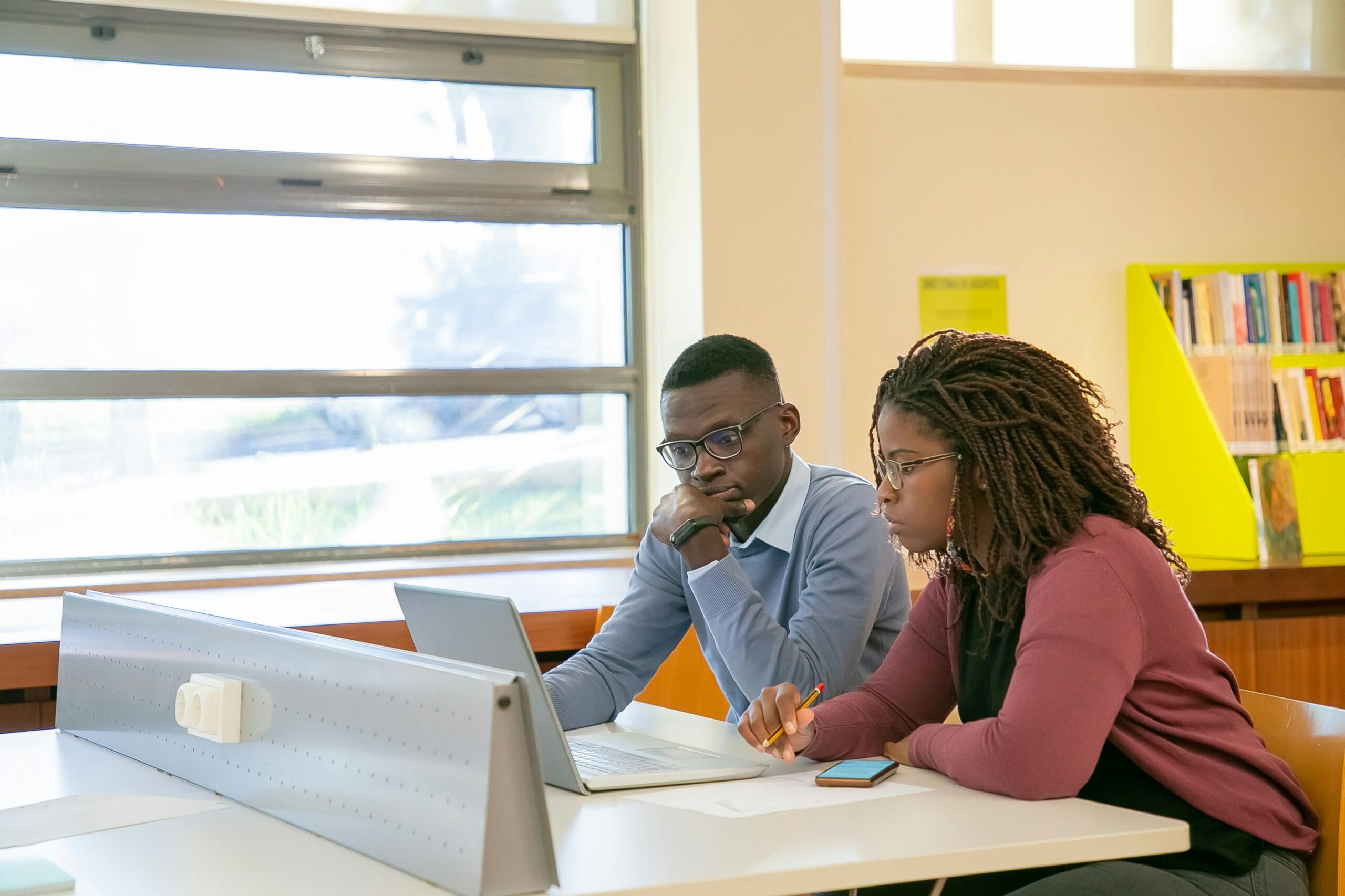Scholarships of this magnitude provide not only financial relief but also access to some of the best universities in the world, offering a quality education that can reshape the trajectory of a student’s life. For African students, the financial support covers tuition, living expenses and sometimes even health insurance, allowing them to focus entirely on their academic and personal growth.
These scholarships also open doors to cultural exchange and global networking, which are invaluable assets in today’s competitive job market. The $50,000 financial boost, in particular, can significantly lessen the burden of study-related expenses, providing a stress-free environment conducive to academic success.
Moreover, scholarships for Africans studying in the US do more than just fund education; they contribute to long-term career development. Students who receive these scholarships are often mentored by industry experts, have access to internships and are encouraged to take part in leadership programs.
The funding not only helps them pursue degrees in critical areas like STEM, healthcare and public policy but also positions them as future leaders capable of impacting their home countries. This creates a ripple effect, where the benefits of receiving $50,000 go beyond personal gain and extend to community development, nation-building and fostering stronger international ties.
Types of Scholarships Available for Africans in the US
There are various scholarships available, but let’s break them down to help you understand where to focus your efforts. These scholarships can range from fully funded programs to partial funding and most often, they are tailored to different fields of study or based on academic merit.
Merit-Based Scholarships
Merit-based scholarships are awarded based on academic performance, leadership skills or extracurricular achievements. These scholarships can easily reach $50,000 or more, covering tuition, room, board and sometimes even personal expenses. They recognize students who excel in their studies and show the potential for future impact.
Need-Based Scholarships
Need-based scholarships are designed for students who demonstrate financial need. For African students coming from disadvantaged backgrounds, these scholarships can be a game-changer. The scholarship committees understand the barriers that African students face and are willing to help level the playing field by providing substantial financial support, often upwards of $50,000.
Scholarships for Specific Fields of Study
If you’re passionate about a specific area-like STEM (Science, Technology, Engineering and Mathematics), healthcare or the arts-there are scholarships tailored specifically to your field. These scholarships are often sponsored by universities, private organizations or governments, making it easier for you to access the funding needed to succeed in your chosen career.
Top Scholarships for African Students in the US
Navigating through the different scholarship options can feel overwhelming. But don’t worry, we’ve done the heavy lifting for you. Here are some of the top scholarships African students can apply for:
1. The MasterCard Foundation Scholars Program
This prestigious program partners with US universities to offer full scholarships to talented African students. Not only does it cover tuition and living expenses, but it also provides leadership training, which ensures that scholars are equipped to give back to their communities.
2. Fulbright Foreign Student Program
Fulbright is one of the most well-known scholarships for international students, including Africans. It offers funding for graduate-level education and covers tuition, books, travel and health insurance. Fulbright scholars become part of a global network of leaders, making it a highly competitive yet rewarding opportunity.
3. AAUW International Fellowships
This program is for women from developing countries, including African nations. It provides funding for postgraduate studies and offers grants that can go up to $50,000 or more, depending on the course of study and financial need.
4. Hubert H. Humphrey Fellowship Program
This program offers scholarships for mid-career professionals to study in the US for a year. It’s tailored for African professionals seeking to enhance their leadership skills and network in the US.
5. The Mandela Washington Fellowship for Young African Leaders
While this program doesn’t fully cover tuition, it offers scholarships for Africans to engage in academic coursework and leadership training at US institutions, providing students with the skills to thrive.
How to Increase Your Chances of Securing a Scholarship
Securing a $50,000 scholarship is no walk in the park. It requires preparation, dedication and the ability to present yourself as a worthy candidate. But don’t worry, here are some practical tips to boost your chances:
1. Start Early
The earlier you begin your scholarship search, the better. Deadlines can be competitive and some programs have a lengthy application process. Starting early allows you to gather necessary documents, get recommendation letters and write compelling essays.
2. Focus on Academic Excellence
While some scholarships may not solely focus on grades, academic performance still plays a significant role. Scholarships are investments and committees want to ensure they’re funding students who will make the most of the opportunity.
3. Highlight Extracurricular Activities
Universities in the US value a well-rounded student. Highlight your involvement in clubs, leadership positions, community service or any activities that showcase your passion and commitment. This can set you apart from other candidates.
4. Craft a Compelling Personal Statement
Your personal statement is your chance to tell your story. Be authentic and share why studying in the US is crucial to your personal and professional development. Show how the scholarship will not only benefit you but also how you plan to contribute to your community upon your return.
Life as a Scholarship Recipient in the US
So, what’s it like living as a scholarship recipient in the US? Beyond the academic experience, studying in the US offers cultural exchange, professional networking and the chance to develop lifelong friendships with people from diverse backgrounds. With scholarships that can offer up to $50,000, you’ll have the financial freedom to focus on your studies without the stress of managing living costs.
Adjusting to Life in the US
Adjusting to life in the US can be a significant change, but one of the advantages of studying with a scholarship is the support system that comes with it. Universities often have dedicated offices to help international students adjust, offering services like orientation, academic advising and mentorship programs.
Building a Network
Networking is crucial in the US and as a scholarship recipient, you’ll have access to numerous academic and professional opportunities. Attend seminars, join clubs and participate in internships to build connections that can help you after graduation.
Staying Connected to Your African Roots
Many African students fear losing touch with their cultural identity while studying abroad. But with strong African student communities across US campuses, staying connected is easier than ever. You can join African student organizations, attend cultural events and even celebrate your heritage with peers from your home continent.
What Happens After Graduation?
Graduating with a US degree opens a world of opportunities. The global reputation of US universities is a significant advantage when seeking employment or even continuing with postgraduate studies. Here’s what you can do after graduating:
1. Stay in the US for Work Opportunities
Many scholarships provide pathways to internships or job placements. With a student visa, you can apply for Optional Practical Training (OPT), which allows you to work in your field of study for up to 12 months-or even longer for STEM fields.
2. Return to Africa with Enhanced Skills
Returning to your home country equipped with a US degree and global network can position you as a leader in your industry. African employers highly value the skills and experiences gained in US institutions, making you an attractive candidate for top roles.
3. Pursue Further Studies
If you’re passionate about research or advancing in your field, consider applying for postgraduate programs in the US. With scholarships available for master’s and PhD programs, you can continue studying without worrying about the financial aspect.
Receiving $50,000 to study in the US as an African student can open doors you’ve only dreamed about. From accessing world-class education to building international networks, this opportunity is more than just financial aid-it’s the key to a brighter future. By following the steps laid out in this guide and staying persistent in your scholarship search, you can turn this dream into reality.
Frequently Asked Questions
Are these scholarships only for specific fields of study?
Some scholarships are general, while others target specific fields such as STEM, healthcare or the arts. It’s important to research the requirements of each scholarship to ensure it aligns with your academic goals.
Do I need to apply directly to US universities to receive these scholarships?
In many cases, yes. Some scholarships are university-specific, meaning you must first apply and be accepted into a US institution before applying for the scholarship. Other scholarships, like Fulbright, may require direct applications through government or non-governmental organizations.
Can I apply for multiple scholarships at the same time?
Yes, applying for multiple scholarships increases your chances of receiving funding. However, make sure to check the guidelines for each, as some may have restrictions on receiving additional aid.
Do these scholarships cover all my expenses, including travel and health insurance?
Most fully funded scholarships, such as the Fulbright Program, cover all major expenses, including tuition, travel, living costs and health insurance. However, partial scholarships may only cover tuition or specific portions of your study expenses.
What are the chances of getting a $50,000 scholarship as an African student?
While competition is high, many scholarships are specifically designed for African students, improving your chances. Focusing on your academic performance, leadership qualities and writing a compelling application can significantly increase your odds.
How long does it take to apply for and receive a scholarship?
The application process can take several months, with deadlines typically falling between six months to a year before the academic year starts. You’ll need to gather documents, write essays and potentially undergo interviews, so starting early is crucial.
Can I stay in the US after graduating with a scholarship?
Many scholarships allow international students to apply for Optional Practical Training (OPT), which lets you stay and work in the US for up to a year (or longer for STEM fields). This gives you valuable work experience in your field of study.
What happens if I don’t maintain good academic standing while on the scholarship?
Most scholarships have academic requirements that you must meet throughout your study. Falling below a certain GPA or failing to meet other conditions could result in losing the scholarship, so it’s essential to remain dedicated to your studies.


